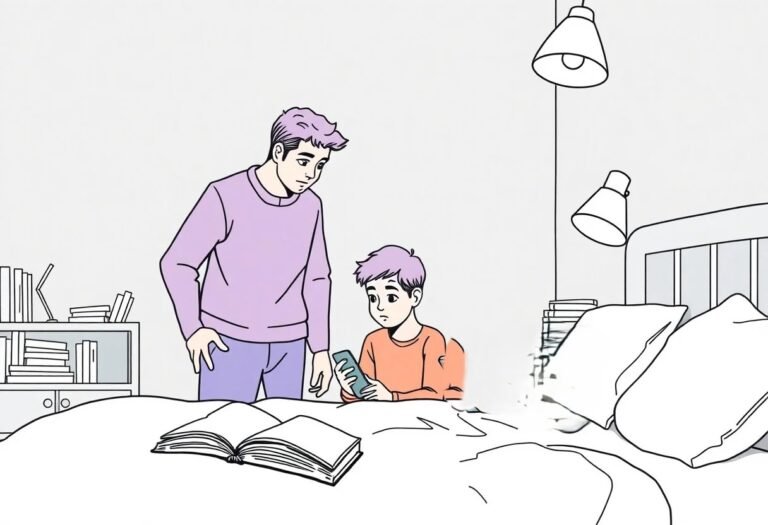PTSD and Trauma in Civilian Life
PTSD and Trauma in Civilian Life: Civilian life can expose you to a range of traumatic experiences, from domestic violence to serious accidents, that may lead to post-traumatic stress disorder (PTSD). Understanding how PTSD manifests in non-military contexts is necessary for recognizing its symptoms and seeking help. Common signs include flashbacks, nightmares, and emotional numbness, which can significantly affect your daily life. This post aims to provide insights into PTSD and its impact, along with information on treatment options and support resources available in the UK.

PTSD and Trauma in Civilian Life: Key Takeaways:
- PTSD can affect anyone, not just military personnel, with common civilian causes, including domestic violence, accidents, and abuse.
- Symptoms of PTSD include nightmares, flashbacks, hypervigilance, and emotional numbness, varying in intensity and duration.
- Diagnosis of PTSD is based on DSM-5 criteria, while Complex PTSD (C-PTSD) can occur due to prolonged exposure to trauma.
- Effective treatment options include EMDR, trauma-focused cognitive-behavioral therapy (CBT), and somatic therapies that focus on body awareness and healing.
- A variety of support resources are available in the UK, including NHS trauma services and organizations dedicated to helping survivors of abuse and trauma.
Understanding PTSD
The term PTSD, or Post-Traumatic Stress Disorder, refers to a mental health condition that can develop after experiencing or witnessing a traumatic event. It affects not only military personnel but also civilians who encounter various forms of trauma, including domestic violence, accidents, or abuse. Understanding PTSD is important for recognizing its impact on daily life and seeking appropriate support.
Definition and Overview
Above all, PTSD is characterized by a range of distressing symptoms that persist long after the initial trauma. Symptoms may include nightmares, flashbacks, hypervigilance, and emotional numbness. For many individuals, these symptoms can lead to significant disruptions in their daily routines and relationships, highlighting the importance of early recognition and intervention.
Common Misconceptions
On many occasions, you might hear misconceptions about PTSD. A prevalent belief is that it only affects veterans, while in reality, civilians are also deeply impacted by traumatic experiences. Additionally, some think those with PTSD will always display dramatic symptoms, overlooking the nuanced, often hidden nature of trauma-related issues. This misunderstanding can prevent you from seeking help or recognizing the signs in yourself or others.
Definition of PTSD often falls prey to oversimplification. Many believe it is solely a response to combat experiences, yet PTSD can arise from a variety of civilian traumas, from witnessing violent events to suffering abuse or accidents. This leads to a lack of awareness among many individuals, minimizing the experiences of those affected. Furthermore, the idea that recovery is impossible can discourage people from seeking the help they need. Challenging these misconceptions is important as they can hinder understanding and access to appropriate support and treatments.
Symptoms of PTSD
One of the most challenging aspects of PTSD is recognizing its symptoms, which often manifest differently in civilians than in veterans. In the UK, individuals may experience symptoms stemming from various traumatic experiences, such as domestic violence or accidents. Common signs include nightmares, flashbacks, persistent anxiety, and emotional numbness, all of which can significantly disrupt your daily life and well-being.
Key Symptoms
An individual suffering from PTSD may encounter a range of distressing symptoms. These include heightened emotional responses, avoidance of reminders related to the trauma, and a pervasive sense of dread. You might also feel detached from loved ones or have trouble sleeping. Identifying these symptoms early can lead to timely intervention and support.
Complex PTSD
Symptoms of Complex PTSD (C-PTSD) extend beyond those of standard PTSD. This condition usually arises from prolonged or repeated trauma, such as ongoing abuse. You may find yourself experiencing difficulties with emotional regulation, persistent feelings of shame, and struggles with relationships. C-PTSD symptoms can be particularly debilitating, leading to a sense of hopelessness and feeling trapped in your circumstances. Effective treatment is vital to help you manage symptoms and rebuild your life positively.
Causes of Trauma in Civilian Life
Despite common perceptions, trauma in civilian life is not solely linked to military experiences. Many civilians face trauma related to various crises, including domestic violence, accidents, and natural disasters. Such events can lead to significant emotional and psychological distress, emphasizing the need for awareness and support in understanding and addressing PTSD in everyday situations.
Domestic Violence
About 1 in 4 women and 1 in 6 men experience domestic violence at some point in their lives in the UK. This alarming statistic underscores the pervasive nature of this issue. Victims often suffer from long-lasting psychological effects, such as PTSD, due to chronic exposure to fear, manipulation, and violence within what should be a safe environment.
Accidents and Natural Disasters
For many, traumatic experiences result from unexpected accidents or natural disasters, which can leave profound emotional scars. These events disrupt your sense of safety and normalcy, leading to potential PTSD symptoms.
Violence and sudden loss of control can occur in various situations, including severe car crashes or catastrophic events like floods and earthquakes. Experiencing an accident can trigger overwhelming feelings of fear and helplessness, while natural disasters can destroy homes and communities, fostering a profound sense of grief and instability. These incidents often result in flashbacks, nightmares, and heightened anxiety, which can affect your daily functioning and relationships.
How PTSD Affects Daily Life
Unlike a common misunderstanding that PTSD only impacts soldiers, the condition can significantly affect your daily life. Symptoms such as flashbacks, hypervigilance, and emotional numbness can hinder your ability to engage in everyday activities, often leading to isolation and reduced quality of life. Adjusting to life after trauma may feel overwhelming, affecting not just mental health but also your physical well-being.
Impact on Relationships
Relationships can become strained when you experience PTSD, as symptoms like irritability and emotional withdrawal may create distance between you and your loved ones. You may find it difficult to trust others or openly communicate your feelings, leading to misunderstandings and conflicts. Over time, this can contribute to feelings of loneliness and despair, emphasizing the importance of seeking support to rebuild connections.
Professional Life
Life in the workplace can be equally challenging for individuals coping with PTSD. You may struggle with focus, productivity, and managing stress, impacting your performance and interactions with colleagues. This often leads to absenteeism or difficulty adhering to deadlines, creating a cycle of stress and anxiety.
Consequently, your work environment may feel increasingly overwhelming, especially if you encounter triggers that remind you of your trauma. Enhanced workplace stress can lead to significant absenteeism, which may threaten your job security. Yet, with proper support and understanding from supervisors and co-workers, you can create a more accommodating work environment that allows you to thrive professionally while managing your PTSD symptoms.
Diagnosis of PTSD
Many individuals experiencing symptoms of PTSD may find it difficult to seek help. Diagnosing PTSD in civilian life involves understanding your personal experiences and how they align with recognized symptoms and criteria. It’s important to seek a professional evaluation to explore your mental health and the effects of trauma.
Diagnostic Criteria
At the heart of diagnosing PTSD are the DSM-5 criteria, which include symptoms such as intrusive memories, avoidance behavior, negative changes in mood or cognition, and heightened arousal responses. To receive a formal diagnosis, you typically must exhibit these symptoms for more than a month and experience significant disturbance in your daily life.
Importance of Early Detection
Detection of PTSD symptoms early can lead to better outcomes in treatment and recovery. Early identification helps you access support services promptly, reducing the risk of developing complex PTSD, which can arise from protracted exposure to trauma. Early intervention may also assist in alleviating severe symptoms like emotional numbness or hypervigilance, which can substantially impact your daily life and relationships.
Due to the various ways trauma manifests, early detection serves as a pathway to effective treatment, providing you with the tools necessary to manage your symptoms. Engaging in treatment options like therapy and support from organizations can foster resilience and promote healing in your life. Delaying help may intensify your symptoms and prolong your suffering, making it vital to stay aware of changes in your mental well-being and seek help as soon as you recognize signs of distress.
Treatment Options for PTSD
Not all treatment paths will work for everyone, but effective options are available for managing PTSD in civilian life. You can explore various evidence-based therapies and supportive therapies tailored to your unique needs. Understanding these options is vital in finding the healing journey that suits you best.
Evidence-Based Therapies
About half of the individuals with PTSD respond positively to treatments such as Eye Movement Desensitization and Reprocessing (EMDR) and trauma-focused Cognitive Behavioral Therapy (CBT). These evidence-based methods focus on processing traumatic memories and reconfiguring negative thought patterns, leading to improved well-being and recovery.
Supportive Therapies
Therapies such as mindfulness techniques and somatic experiencing have shown positive effects in alleviating PTSD symptoms. By incorporating these supportive therapies, you can enhance your overall healing. This approach not only complements other treatments but also aids in developing greater self-awareness and emotional regulation.
But you should also consider that supportive therapies offer practical skills for daily life, making it easier to cope with stressors related to PTSD. These therapies emphasize mind-body connections and can help you regain a sense of control and safety in your life. Incorporating these options into your treatment plan can foster resilience and promote sustainable mental health over time.
Final Words
As a reminder, understanding PTSD and its impact on civilian life is imperative for recognizing the signs and seeking appropriate support. Whether you are personally affected or know someone who is, acknowledging that trauma can stem from various life experiences is vital. By exploring treatment options and resources available in the UK, you can empower yourself or others on the path to healing. Take the first steps to address the effects of trauma and foster resilience in your life.
FAQ
Q: What are the main causes of PTSD in civilians?
A: PTSD in civilians can stem from a variety of traumatic experiences. Common causes include domestic violence, physical and emotional abuse, serious accidents, natural disasters, witnessing violent events, and even prolonged exposure to stressful situations such as caring for someone with a chronic illness. Each individual’s experience and resulting trauma can vary greatly, leading to different manifestations of PTSD.
Q: How can someone recognize if they have PTSD?
A: Recognizing PTSD involves understanding its symptoms, which can include flashbacks, nightmares, severe anxiety, and uncontrollable thoughts about the traumatic event. Individuals may also experience hypervigilance, emotional numbing, or avoidance of reminders of the trauma. It’s important to consult a healthcare professional if these symptoms interfere with daily life, persist for more than a month, or cause significant distress.
Q: What is the difference between PTSD and Complex PTSD (C-PTSD)?
A: PTSD is usually associated with a single traumatic event, while Complex PTSD (C-PTSD) often arises from prolonged or repeated trauma, such as abuse or domestic violence. C-PTSD includes additional symptoms such as difficulties in emotional regulation, feelings of hopelessness, and interpersonal relationship challenges. It is crucial for mental health professionals to differentiate between these for effective treatment.
Q: What treatment options are available for civilians with PTSD?
A: Treatment options for PTSD include various therapeutic approaches such as Eye Movement Desensitization and Reprocessing (EMDR), trauma-focused Cognitive Behavioral Therapy (CBT), and somatic therapies, which focus on the connection between mind and body. Medication may also be prescribed to manage symptoms. Working with a mental health professional to determine the most suitable treatment plan based on individual needs is crucial.
Q: Where can civilians find support for PTSD in the UK?
A: Civilians seeking support for PTSD in the UK can access a range of resources. The NHS provides various trauma services, while organizations like Rape Crisis and domestic abuse charities offer tailored support and guidance. Additionally, mental health hotlines and online therapy platforms can provide immediate assistance and counseling services to those in need.







